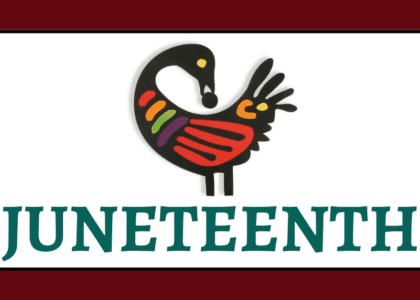by Brent Newberry
The Ancient Greek biographer, Plutarch, tells the story of Theseus, a mythical king and founder of Athens, who slayed Minotaur and won many victories. It’s said that the Athenians
preserved his ship for generations. They did so by replacing the rotted boards with new boards so that the ship always remained on display.
Another more contemporary variant tells a story of Theseus on the ship, as his sailors replace the boards on the ship one by one while at sea, until every single board has been replaced.
Plutarch wryly notes that the ship of Theseus became the foil for philosophers—and still is to this day—of what it means to grow, for some thought the ship remained the same while others thought it was a new boat altogether.
These philosophical exercises span millennia: is it the same river if the water is always being replenished by different water molecules from rain and tributaries? If you patch a sock often
enough that one day the sock consists of only the patches, is it the same sock or a new one? If a cicada has been living underground since 2004 and emerges in 2021 to shed that exoskeleton for a new one, is it the same cicada or a different one? If that cicada was hatched before iPhones and Facebook but emerges into a world ravaged by both, is it the same world or a different one? If a modern-day political party removes the planks from its party platform yet develops a 25% QAnon following, is it still the same party or a new one? If I grew up a fundamentalist Baptist but now I’m a progressive one, am I the same person?
They say our cells regenerate every seven years; maybe my last batch were spiritually progressive(ish).
One of the reasons I find the incarnation compelling is the same reason (or is it different?) that Pentecostide is my favorite season (credit to Dr. Molly Marshall for “Pentecostide”). The story of God continues—the same and not quite the same. God is on the move during the exodus and the exile, but even closer than simply accompanying us, God adapts to inhabit our humanity through Jesus and now within us. God is the same, yet not quite the same, and maybe that’s the same for us.
Leadership scholar, Ronald Heifetz, says that people don’t fear change so much as they fear loss. He gives the example of someone winning the lottery; they aren’t afraid of the changes
that accompany millions of dollars. But most of us tend to resist the changes that might cause us to lose something. Existentially, maybe that’s our mortality playing out in how we
prioritize hanging onto power or projecting our image or protecting our money. Theologically, maybe we’re afraid of losing parts of ourselves we’ve known for so long, not for fear of losing ourselves so much as the version of God we’ve come to know. If we change, then God changes, and if God changes, what security is there really?
As someone who enjoys road trips and roller coasters and pick-up games of basketball, I suppose the idea of God as a sturdy, impenetrable fortress isn’t something I’m drawn to (my
privileges play a significant part in this as well). I’m more inclined to think of God like inertia or gravity or dizziness or the wind. Movement-based, often the same, yet sometimes different.
Human beings are changing, evolving, growing. We might not like it, we may fear it, but it’s happening regardless. Physically—anatomically—we are changing. And beyond our cells,
we’re changing atomically, too. Researchers tell us an obvious but unrealized fact: our cells are made up of atoms, and when our cells die off and new cells are regenerated, some of
these atoms escape our bodies and move on, sometimes passed on to other people.
In a literal way, we are all interconnected with one another.
The same, and not quite the same, person.
Born again, anew, from within and above and beyond, each one of us, the same, and not quite the same, body.
Maybe that’s why we feel empathy and compassion as human beings; because when you are hurting, it’s a literal part of me that’s injured, too. In the least, we’re obligated to one another by physics and biology.
And maybe that’s where Love comes in. Movement-based, often the same, sometimes different. It’s as real and invisible as gravity or inertia, as empowering as a fortress, as generative as atomic molecules giving and sharing life between us. It slowly converts us—our perspectives, our priorities, our way of being—changing out one experience with another, plank by plank, person by person, policy by policy.
We say God is love and also our deepest sense of security, which means love is our means and end. We find God, we find security, we find ourselves—by loving one another through the work of solidarity and justice and kinship and mutuality.
We find God and we find security, when we find in others a version of ourselves—the same, and not quite the same.
Brent A. Newberry serves as the Pastor of the First Baptist Church of Worcester, MA. He is pursuing his Doctor of Ministry in Transformational Leadership at Boston University School of Theology, and he is a graduate of Truett Seminary at Baylor University (MDiv) and Mississippi College (BA). Brent enjoys reading, writing, preaching, photography, fantasy baseball, hanging out with friends and family, ramen noodles, and walks with his dog Zooey Deschanel. Brent is an ENFP and Enneagram 4w3.





Recent Comments